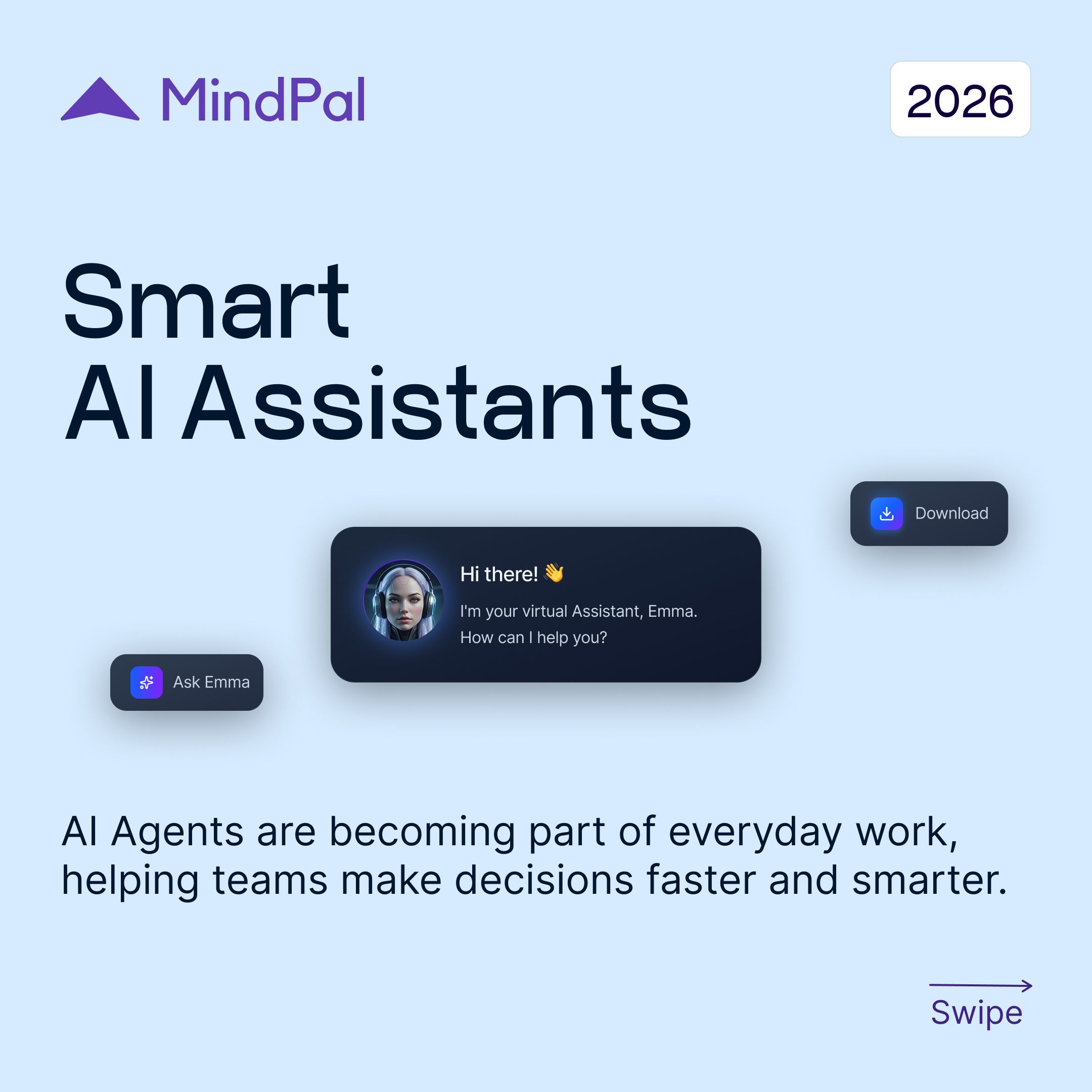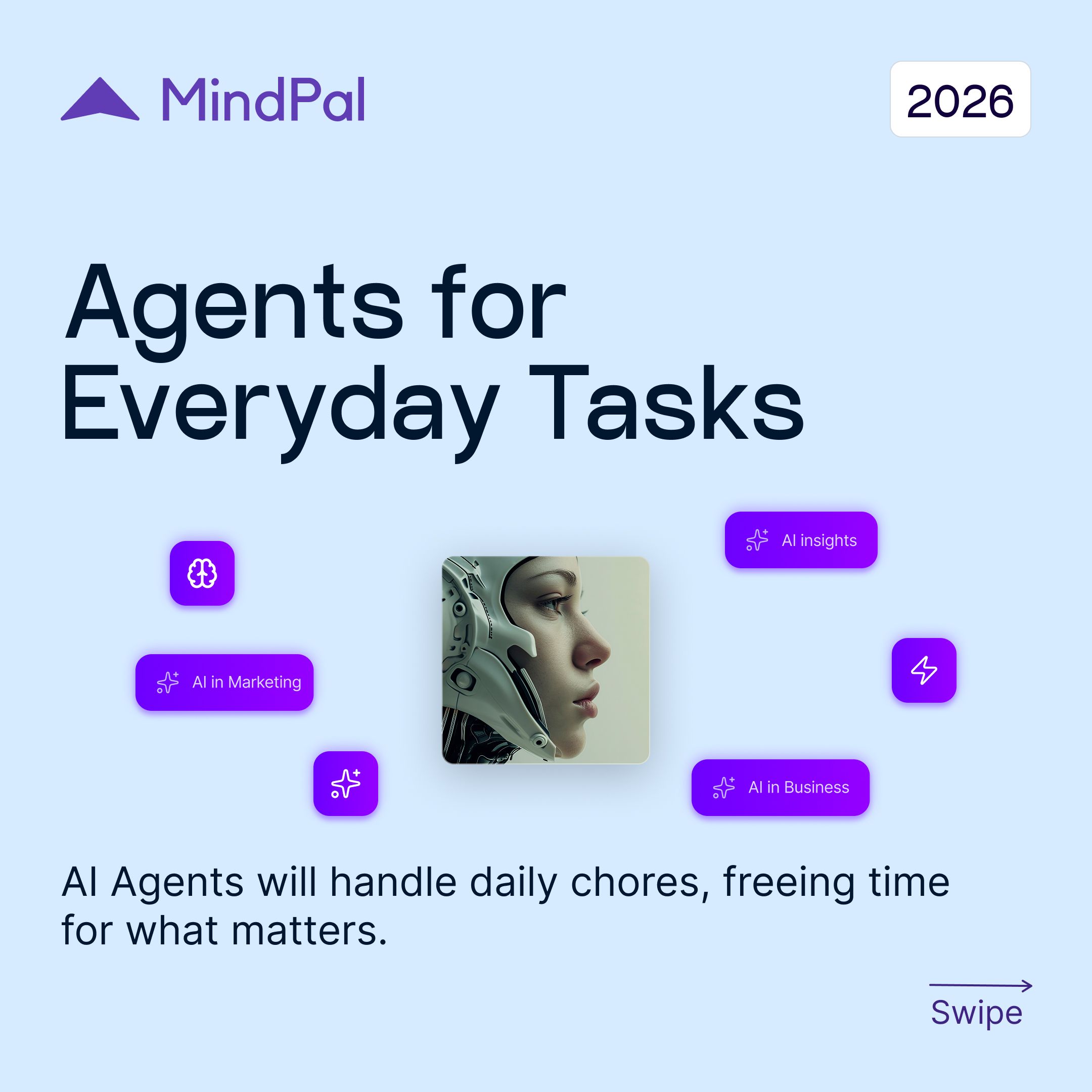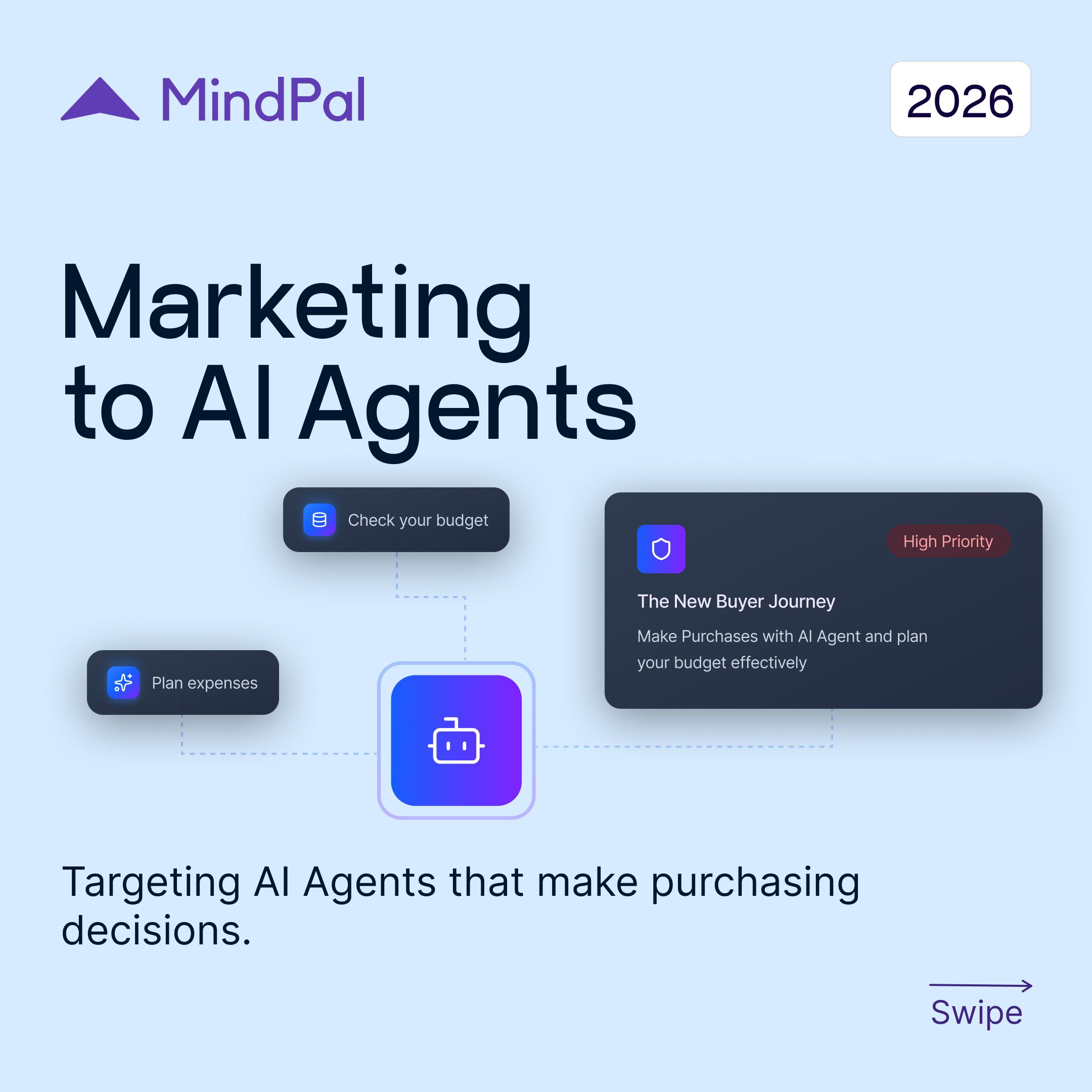October 15, 2025
AI Trends Shaping Business in 2026: Redefining Innovation, Efficiency, and Human Creativity
8 min read

As we approach 2026, the landscape of business is on the cusp of a profound transformation driven by artificial intelligence. No longer confined to niche applications or experimental labs, AI is poised to integrate deeply into the fabric of everyday operations, reshaping how organizations innovate, operate efficiently, and harness human potential.
Drawing from insights in MindPal's latest report, this article explores the key trends that will define the year ahead. From intelligent assistants streamlining workflows to AI-driven security measures and even marketing strategies tailored to non-human buyers, these developments promise to elevate productivity while addressing ethical and practical challenges. Let's delve into what lies ahead and how businesses can prepare.
The Rise of Smart AI Assistants: Empowering Teams for Smarter Decisions
One of the most immediate and impactful trends is the proliferation of smart AI assistants. These virtual agents are evolving from simple chatbots into sophisticated partners embedded in daily work routines. Imagine a scenario where an AI like "Emma," a virtual assistant, greets you with a personalized message: "Hi there! I'm your virtual Assistant, Emma. How can I help?" This isn't science fiction; it's the reality unfolding in 2026.
AI assistants will help teams make decisions faster and more intelligently by analyzing vast datasets in real time, offering insights that humans might overlook. For instance, in a high-stakes meeting, an AI could pull up relevant market data, predict outcomes based on historical trends, or even suggest alternative strategies. This integration will reduce the cognitive load on employees, allowing them to focus on high-level strategic thinking rather than getting bogged down in details.
The benefits extend across industries. In healthcare, AI assistants could triage patient inquiries, prioritizing urgent cases. In finance, they might simulate investment scenarios to guide portfolio management. MindPal's vision emphasizes that these agents aren't replacements for human workers but enhancers, fostering collaboration. Businesses adopting this trend early will likely see gains in agility and competitiveness, but success hinges on seamless integration with existing tools and training programs to build user trust.

Agents for Everyday Tasks: Liberating Time for Meaningful Work
Building on the foundation of smart assistants, AI agents dedicated to handling everyday tasks represent another pivotal shift. In 2026, these agents will automate routine chores that currently consume significant portions of the workday, freeing up time for innovation and creativity. Think of buttons in your workflow interface labeled "AI in Marketing," "AI Insights," or "AI in Business"—simple triggers that offload mundane responsibilities.
Daily chores like data entry, scheduling, report generation, and even basic research will be delegated to AI, which can process them with unparalleled speed and accuracy. For example, an AI agent could scan through emails, summarize key points, and flag action items, or it could automate inventory checks in retail by predicting stock needs based on sales patterns. This automation isn't just about efficiency; it's about reallocating human resources to what truly matters—solving complex problems, building relationships, and driving growth.
The implications for workforce dynamics are significant. Employees will have more bandwidth for creative endeavors, potentially leading to higher job satisfaction and reduced burnout. However, organizations must navigate challenges such as ensuring data privacy and upskilling workers to collaborate effectively with AI. MindPal highlights that the key to success lies in customizable agents that adapt to specific business needs, turning what was once a time sink into a strategic advantage.

Prioritizing Security and Trust: AI as a Guardian of Business Integrity
In an era of escalating cyber threats, security and trust will be non-negotiable in AI adoption. By 2026, AI will serve as a robust shield, protecting businesses while promoting transparency and fairness in operations. Features like threat detection, data protection, transparency mechanisms, and compliance tools will become standard in AI systems.
AI's role in cybersecurity will involve proactive measures: real-time monitoring to identify anomalies, predictive analytics to foresee potential breaches, and automated responses to mitigate risks. For instance, an AI could detect unusual network activity and isolate affected systems before damage spreads. Beyond defense, AI will ensure that decision-making processes are auditable and unbiased, addressing concerns about algorithmic fairness that have plagued earlier generations of technology.
Transparency will be a cornerstone, with AI systems designed to explain their reasoning in understandable terms—often referred to as "explainable AI." This builds trust among users and stakeholders, ensuring compliance with regulations like GDPR or emerging AI-specific laws. Businesses that prioritize these elements will not only safeguard their assets but also enhance their reputation in a market increasingly wary of opaque technologies. MindPal's insights underscore that investing in secure AI isn't just a defensive strategy; it's a pathway to sustainable growth in a trust-based economy.

Marketing to AI Agents: Navigating the New Buyer Journey
Perhaps the most intriguing trend for 2026 is the emergence of marketing strategies directed at AI agents themselves. As these agents take on more autonomous roles in purchasing and decision-making, businesses will need to adapt their approaches to target non-human buyers. Elements such as "Plan Expenses," "Check Your Budget," and "The New Buyer Journey" illustrate this shift, where AI handles procurement with efficiency and precision.
In this paradigm, AI agents will evaluate options, negotiate terms, and execute purchases based on predefined criteria like cost, quality, and alignment with business goals. Marketers will craft campaigns optimized for AI logic—using structured data, APIs, and machine-readable content to influence these digital decision-makers. For example, a software vendor might provide detailed API endpoints that allow an AI agent to simulate product integration before buying.
This trend challenges traditional marketing funnels, requiring a blend of human creativity and technical savvy. Companies that succeed will focus on building AI-friendly ecosystems, such as personalized data feeds or simulation tools. The potential upside is immense: faster transaction cycles, reduced human error, and more data-driven buying. However, it also raises questions about accountability—who is responsible if an AI makes a suboptimal purchase? MindPal suggests that forward-thinking marketers will view this as an opportunity to innovate, creating hybrid strategies that appeal to both humans and machines.

Preparing for the AI-Driven Future: A Call to Action
As these trends converge in 2026, the overarching theme is clear: AI will redefine business by amplifying human capabilities rather than supplanting them. Innovation will flourish as teams leverage AI for deeper insights; efficiency will soar through automation; and creativity will be unleashed as workers focus on visionary pursuits. Yet, this future demands proactive preparation—investing in ethical AI frameworks, fostering a culture of continuous learning, and staying abreast of regulatory changes.
For businesses looking to stay ahead, resources like MindPal offer valuable guidance. Subscribe to their updates for more insights and practical tips on implementing these trends. By embracing AI thoughtfully, organizations cannot only navigate the challenges of tomorrow but thrive in a world where technology and humanity intersect to create unprecedented value. What steps will your business take to harness these opportunities?
Share this blog post via
Read other articles
1 / 0
This site is protected by reCAPTCHA and the Google Privacy Policy and Terms of Service apply.
Copyright © MindPal 2026. All Right Reserved.